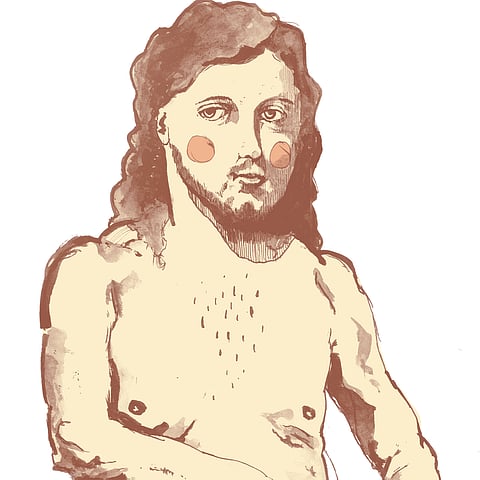Jesus in the throat
(This is a short story from our March 2016 print quarterly, 'At the Cost of Health'. See more from the issue here.)
Bombay, as it used to be called, was the great bustling city where my aunt, uncle and cousins lived and I would visit them in my holidays from my own sleepy town, a hundred and twenty miles away, on the Deccan plateau. In the big city, everyone lived in flats and my cousins in a row of rather posh buildings set one after another down an alley, which was a private road off 'Breach Candy', a small beach off one of the bays of southern Bombay. The buildings belonged to multinational companies which housed their executives in the flats. My uncle worked for a large mechanical engineering firm in the city and the other flats in the building were occupied by the families of the firm's other executives.
At the end of the alley, turning it into a cul-de-sac, was a garage with old and crumbling wooden doors that had been converted into the workshop and residence of Mahesh and Gopi, the dhobi family who were the proud laundry-wallahs of the fifty or sixty flats in the alley.

